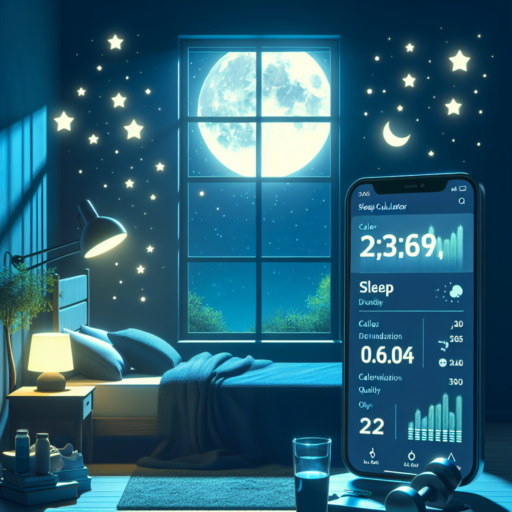How many calories do I burn in my sleep?
Understanding the calories you burn in your sleep is a fascinating aspect of how our body’s metabolism works even in rest mode. While we’re snoozing away, our bodies are far from idle – they’re actively engaged in numerous vital processes including cell repair, digestion, and blood circulation. This involuntary workout, so to speak, does indeed burn calories. But just how many? The answer isn’t straightforward and varies based on individual factors such as weight, age, and sleep duration.
It’s estimated that on average, a person burns about 0.42 calories per pound, per hour of sleep. To put it into perspective, a person weighing 150 pounds might burn approximately 63 calories an hour. This means in a typical 8-hour sleep cycle, they could burn around 504 calories. But remember, this is an approximation, and the exact numbers could be influenced by personal metabolic rates and the quality of sleep one gets. Deep sleep phases, for example, are believed to consume more energy due to their intensive brain activity.
Certain strategies can marginally increase the number of calories you burn while sleeping. These include maintaining a healthy diet, regular physical activity, and optimizing your sleep environment to ensure a deep, uninterrupted sleep. Reducing stress and avoiding caffeine before bedtime can also help improve the quality of your sleep, potentially leading to a slight uptick in nighttime calorie expenditure. While the differences might not be huge, every little bit adds up in the journey towards a healthier lifestyle.
No se han encontrado productos.
Do you burn 1,000 calories sleeping?
Many individuals question the efficiency of the human body at burning calories during rest periods, particularly when it comes to how many calories we burn while sleeping. It’s a fascinating aspect of our body’s metabolism and energy consumption. Understanding the dynamics of calorie burn during sleep could change the way you view your overall health and fitness strategy.
While sleeping, your body continues to perform essential functions such as breathing, circulating blood, and repairing cells, all of which require energy. The number of calories burned during this process, however, is often misunderstood. The idea that one could burn up to 1,000 calories simply by sleeping might seem appealing, but it’s crucial to examine the factors that influence caloric expenditure during sleep.
Factors such as your body weight, the sleep duration, and your individual metabolism play a pivotal role in determining the number of calories you burn while sleeping. For someone to burn a significant amount of calories, such as 1,000, during a night’s sleep, several specific conditions and metabolic rates would have to align. Typically, the average person burns around 0.42 calories per pound, per hour of sleep. For a 150-pound individual, this equates to approximately 63 calories per hour. Given the average sleep duration of 7 to 8 hours, the total caloric expenditure would be far from the 1,000-calorie mark.
Streamlining your focus on enhancing sleep quality and understanding the true caloric output during rest is more beneficial than holding onto the misconception of burning 1,000 calories. Incorporating practices such as maintaining a consistent sleep schedule and creating a restful sleeping environment can optimize your metabolic rate and contribute to overall health and weight management.
How many calories is 7 hours of sleep?
Understanding the relationship between sleep and calorie burn can be fascinating. When it comes to the question, «How many calories is 7 hours of sleep?», it’s essential to recognize that our bodies are always at work, even when we’re resting. During a seven-hour sleep period, an average adult burns approximately 400 to 500 calories. However, this number can vary based on factors such as age, weight, and metabolism rate.
The process of calorie burning while asleep is tied to our Basal Metabolic Rate (BMR), which accounts for the majority of our daily calorie expenditure. BMR represents the number of calories required to maintain basic physiological functions while at rest. Throughout a seven-hour sleep, the body’s energy is primarily used to repair cells, support brain and organ functions, and regulate temperature and breathing.
Individual differences play a significant role in the exact number of calories burned. For example, someone with a higher muscle mass will have a higher BMR and thus burn more calories during sleep compared to an individual with a lower muscle mass. Additionally, factors such as engaging in regular physical activity can influence your metabolic rate, potentially increasing the calorie burn even during restful periods like sleep.
How many calories do I spend sleeping?
Understanding the calories you burn while sleeping is essential for those keeping an eye on their metabolic rate and overall health. Surprisingly, our bodies continue to expend energy even in the state of rest. The number of calories burned varies depending on several factors, including body weight, age, and sleep duration.
Generally, an average adult burns approximately 50-70 calories per hour while sleeping. This means, in a typical 8-hour sleep cycle, one might expend between 400 to 560 calories. This expenditure is the body’s way of maintaining vital functions such as breathing, circulating blood, and repairing cells during sleep.
Body weight plays a pivotal role in determining the exact calorie expenditure. Individuals with a higher body mass index (BMI) tend to have a higher basal metabolic rate (BMR), resulting in more calories being burned during sleep. For example, a person weighing 150 pounds might burn around 63 calories per hour, whereas someone weighing 200 pounds might burn around 86 calories per hour. This variability underscores the importance of considering personal physiological characteristics when estimating calorie burn.




